(溴甲基)环己烷 ,Cyclohexylmethyl bromide ,99%
产品编号:SIGMA-C106003| CAS NO:2550-36-9| 分子式:C7H13Br| 分子量:177.0821
本网站销售的所有产品仅用于工业应用或者科学研究等非医疗目的,不可用于人类或动物的临床诊断或者治疗,非药用,非食用,
| 产品名称 | (溴甲基)环己烷 |
|---|---|
| 英文名称 | Cyclohexylmethyl bromide |
| CAS编号 | 2550-36-9 |
| 产品沸点 | 175.6±0.0 °C at 760 mmHg |
| 产品密度 | 1.3±0.1 g/cm3 |
| 产品闪点 | 57.2±0.0 °C |
| 精确质量 | 176.020050 |
| LogP | 3.74 |
| 外观性状 | 无色或淡黄色液体 |
| 蒸气压 | 1.5±0.3 mmHg at 25°C |
| 折射率 | 1.482 |
| 稳定性 | 如果遵照规格使用和储存则不会分解。 |
| 储存条件 | 密封于阴凉干燥环境 |
相关文档
化学品安全说明书(MSDS)
下载MSDS质检证书(COA)
相关产品
| 符号 |
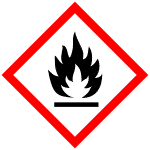
GHS02 |
|---|---|
| 信号词 | Warning |
| 危害声明 | H226 |
| 个人防护装备 | Eyeshields;Gloves;half-mask respirator (US);multi-purpose combination respirator cartridge (US) |
| 危害码 (欧洲) | Xi:Irritant; |
| 风险声明 (欧洲) | R36/37/38 |
| 安全声明 (欧洲) | S23-S24/25-S37/39-S26 |
| 危险品运输编码 | UN 1993 3/PG 3 |
| WGK德国 | 3 |
| 包装等级 | III |
| 危险类别 | 3 |
| 海关编码 | 2903999090 |
Synonym:Bromomethylcyclohexane Section 2 - COMPOSITION, INFORMATION ON INGREDIENTS
Risk Phrases: 36/37/38 Section 3 - HAZARDS IDENTIFICATION EMERGENCY OVERVIEW
Irritating to eyes, respiratory system and skin. Potential Health Effects Eye: Causes eye irritation. Skin: Causes skin irritation. May be harmful if absorbed through the skin. Ingestion: May cause irritation of the digestive tract. May be harmful if swallowed. Inhalation: Causes respiratory tract irritation. May be harmful if inhaled. Chronic: No information found. Section 4 - FIRST AID MEASURES Eyes: Immediately flush eyes with plenty of water for at least 15 minutes, occasionally lifting the upper and lower eyelids. Get medical aid. Skin: Get medical aid. Flush skin with plenty of water for at least 15 minutes while removing contaminated clothing and shoes. Wash clothing before reuse. Ingestion: Never give anything by mouth to an unconscious person. Get medical aid. Do NOT induce vomiting. If conscious and alert, rinse mouth and drink 2-4 cupfuls of milk or water. Wash mouth out with water. Inhalation: Remove from exposure and move to fresh air immediately. If not breathing, give artificial respiration. If breathing is difficult, give oxygen. Get medical aid. Notes to Physician: Treat symptomatically and supportively. Section 5 - FIRE FIGHTING MEASURES General Information: As in any fire, wear a self-contained breathing apparatus in pressure-demand, MSHA/NIOSH (approved or equivalent), and full protective gear. Vapors can travel to a source of ignition and flash back. During a fire, irritating and highly toxic gases may be generated by thermal decomposition or combustion. Flammable liquid and vapor. Vapors may be heavier than air. They can spread along the ground and collect in low or confined areas. Extinguishing Media: Use water spray, dry chemical, carbon dioxide, or chemical foam. Section 6 - ACCIDENTAL RELEASE MEASURES General Information: Use proper personal protective equipment as indicated in Section 8. Spills/Leaks: Absorb spill with inert material (e.g. vermiculite, sand or earth), then place in suitable container. Avoid runoff into storm sewers and ditches which lead to waterways. Clean up spills immediately, observing precautions in the Protective Equipment section. Remove all sources of ignition. Use a spark-proof tool. Provide ventilation. Section 7 - HANDLING and STORAGE Handling: Wash thoroughly after handling. Remove contaminated clothing and wash before reuse. Ground and bond containers when transferring material. Use spark-proof tools and explosion proof equipment. Avoid contact with eyes, skin, and clothing. Empty containers retain product residue, (liquid and/or vapor), and can be dangerous. Keep container tightly closed. Avoid ingestion and inhalation. Use with adequate ventilation. Do not pressurize, cut, weld, braze, solder, drill, grind, or expose empty containers to heat, sparks or open flames. Keep away from heat, sparks and flame. Storage: Keep away from sources of ignition. Store in a cool, dry place. Store in a tightly closed container. Store in a cool, dry, well-ventilated area away from incompatible substances. Flammables-area. Section 8 - EXPOSURE CONTROLS, PERSONAL PROTECTION Engineering Controls: Facilities storing or utilizing this material should be equipped with an eyewash facility and a safety shower. Use adequate ventilation to keep airborne concentrations low. Exposure Limits CAS# 2550-36-9: Personal Protective Equipment Eyes: Wear chemical splash goggles. Skin: Wear appropriate protective gloves to prevent skin exposure. Clothing: Wear appropriate protective clothing to prevent skin exposure. Respirators: Follow the OSHA respirator regulations found in 29 CFR 1910.134 or European Standard EN 149. Use a NIOSH/MSHA or European Standard EN 149 approved respirator if exposure limits are exceeded or if irritation or other symptoms are experienced. Section 9 - PHYSICAL AND CHEMICAL PROPERTIES Physical State: Liquid Color: clear light yellow Odor: Not available. pH: Not available. Vapor Pressure: Not available. Viscosity: Not available. Boiling Point: 76 - 77 deg C @ 26 mmHg Freezing/Melting Point: Not available. Autoignition Temperature: Not available. Flash Point: 57 deg C ( 134.60 deg F) Explosion Limits, lower: Not available. Explosion Limits, upper: Not available. Decomposition Temperature: Solubility in water: Specific Gravity/Density: 1.280 Molecular Formula: C7H13Br Molecular Weight: 177.08 Section 10 - STABILITY AND REACTIVITY Chemical Stability: Stable under normal temperatures and pressures. Conditions to Avoid: Ignition sources, excess heat. Incompatibilities with Other Materials: Strong oxidizing agents, strong bases. Hazardous Decomposition Products: Carbon monoxide, carbon dioxide, hydrogen bromide. Hazardous Polymerization: Has not been reported Section 11 - TOXICOLOGICAL INFORMATION RTECS#: CAS# 2550-36-9 unlisted. LD50/LC50: Not available. Carcinogenicity: Cyclohexylmethyl bromide - Not listed by ACGIH, IARC, or NTP. Section 12 - ECOLOGICAL INFORMATION Section 13 - DISPOSAL CONSIDERATIONS Dispose of in a manner consistent with federal, state, and local regulations. Section 14 - TRANSPORT INFORMATION IATA Shipping Name: FLAMMABLE LIQUIDS, N.O.S. Hazard Class: 3 UN Number: 1993 Packing Group: III IMO Shipping Name: FLAMMABLE LIQUIDS, N.O.S. Hazard Class: 3 UN Number: 1993 Packing Group: III RID/ADR Shipping Name: FLAMMABLE LIQUIDS, N.O.S. Hazard Class: 3 UN Number: 1993 Packing group: III Section 15 - REGULATORY INFORMATION European/International Regulations European Labeling in Accordance with EC Directives Hazard Symbols: XI Risk Phrases: R 36/37/38 Irritating to eyes, respiratory system and skin. Safety Phrases: S 26 In case of contact with eyes, rinse immediately with plenty of water and seek medical advice. S 37/39 Wear suitable gloves and eye/face protection. WGK (Water Danger/Protection) CAS# 2550-36-9: No information available. Canada None of the chemicals in this product are listed on the DSL/NDSL list. CAS# 2550-36-9 is not listed on Canada's Ingredient Disclosure List. US FEDERAL TSCA CAS# 2550-36-9 is not listed on the TSCA inventory. It is for research and development use only. SECTION 16 - ADDITIONAL INFORMATION N/A |
|
~69% 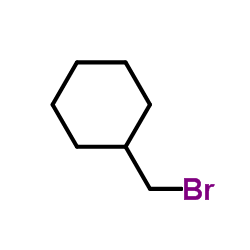
2550-36-9 |
| 文献:Daniels, Rhys G.; Paquette, Leo A. Journal of Organic Chemistry, 1981 , vol. 46, # 14 p. 2901 - 2910 |
|
~% 
2550-36-9 |
| 文献:Comptes Rendus Hebdomadaires des Seances de l'Academie des Sciences, , vol. 142, p. 344 Bulletin de la Societe Chimique de France, , vol. <3> 35, p. 548 |
|
~%
详细
|
| 文献:Journal of the Chemical Society, Perkin Transactions 2: Physical Organic Chemistry (1972-1999), , p. 879 - 886 |
|
~% 
2550-36-9 |
| 文献:Comptes Rendus Hebdomadaires des Seances de l'Academie des Sciences, , vol. 142, p. 344 Bulletin de la Societe Chimique de France, , vol. <3> 35, p. 548 |
|
~%
详细
|
| 文献:Journal of the Chemical Society, Perkin Transactions 2: Physical Organic Chemistry (1972-1999), , p. 879 - 886 |
|
~21% 
2550-36-9 |
| 文献:Journal of Organic Chemistry, , vol. 48, # 12 p. 2084 - 2090 |
|
~0% 
2550-36-9 |
| 文献:Journal of Organic Chemistry, , vol. 48, # 12 p. 2084 - 2090 |
| 上游产品 6 | |
|---|---|
| 下游产品 9 | |




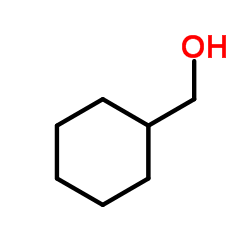
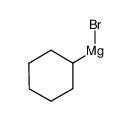

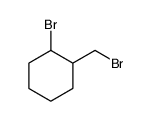
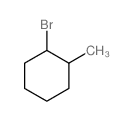
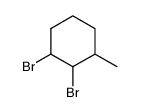










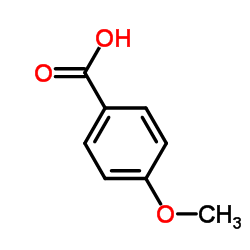
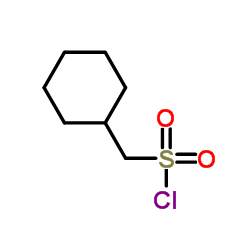
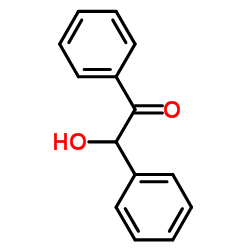
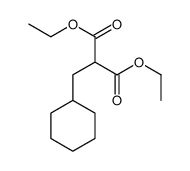
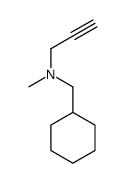
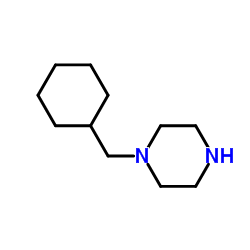





 浙公网安备 33010802013016号
浙公网安备 33010802013016号